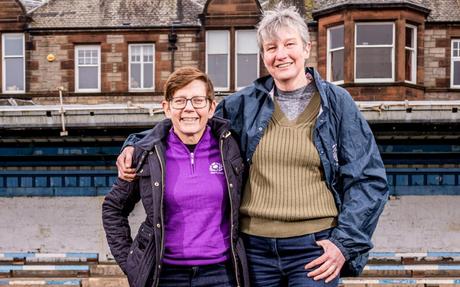
It's been thirty years since England won the Women's Rugby World Cup in Scotland - a rebel event that is perhaps the most unlikely tournament in sporting history.
Despite strong opposition from rugby union's dinosaur watchers, it was cobbled together via a fax from a cupboard at Meadowbank Stadium by a group of rebellious Scottish players, outraged at having their dream of playing in the World Cup stolen. them. They decided in a pub in Leith that the 1994 tournament would take place despite a seemingly impossible deadline.
If this sounds like something from the pen of a screenwriter, it is. The story is about to be told on stage in a musical, 90 Days, at Edinburgh's Traverse Theatre, to commemorate the anniversary of a tournament that should never have happened.
Sue Brodie sips her coffee at the Raeburn Hotel in Edinburgh. Out the window, on a gray day in the Scottish capital, is the Edinburgh Academicals rugby ground, where 6,000 people packed in to watch the 1994 final - the proud culmination of a ground-breaking two weeks.
Brodie was the driving force behind it all. She shakes her head and reminisces.
"It was incredibly naive. There were 400 players from all over the world. There were a lot of things that could have gone wrong," she says.
Next to her is Sandra Colamartino, her teammate from Scotland, who explains why they continued. "It was the only way to maintain the progress of women's rugby," she says. "If we had lost momentum, we could have been ten years behind where we are now."
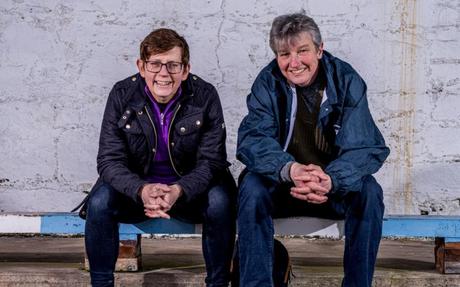
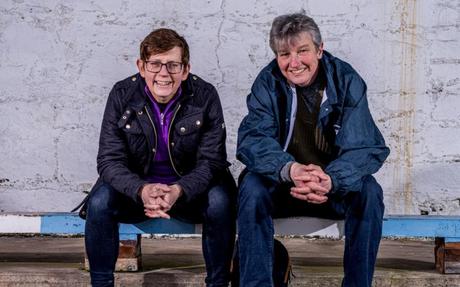
This weekend Scotland will play in front of a record crowd at the Hive Stadium in Edinburgh in the Women's Six Nations, but the sport was not so established 30 years ago.
In 1991, the first Women's World Cup took place in Wales. As a result, the Netherlands had stepped forward to host the 1994 event. The Scots, who played their first international against Ireland at Raeburn Place last year, were one of 16 countries to register.
The story continues
However, just three months before the event, the International Rugby Board told the Dutch that they did not have permission to organize such a tournament. So the World Cup was canceled, even though hundreds of dreams were shattered.
"It was not the right time for the IRB," says Colamartino. "They were drawn into a conversation about women's rugby that they didn't want to be part of at the time. They actively tried to shut us down and put us in our place."
Except Brodie wasn't having it. She is quiet and calm, more of an organizer than a troublemaker, yet the waters run deep.
"When the fax came in, I was so disappointed," Brodie says. "The combination of that emotion and the feeling of 'this just can't happen' pushed me to do something."
She called a team meeting at Todd's Tap and outlined a plan so reckless it made perfect sense - at least after a few drinks. Instead of the Netherlands, the Scottish women would host the tournament. With no professional staff, no idea what they were doing and only 90 days to do it.
"The more beer we drank, the more convinced we became that this was the best idea we had ever heard, because it meant our dream was coming back to life," says Colamartino. "One of the players was a nurse, so Sue said to her, 'Well, you can organize all the ambulances.' I was a graphic designer at Heriot-Watt University, so I was able to stay late and create the program in secret. My then partner worked at a bank. So he was treasurer. It was all distributed that way, combining our skills and pooling our resources."
The mission control - or broom closet center - for the 'World Championship', as they called it to throw the IRB off track, was the Meadowbank Sports Centre, where Brodie was acting manager.
From a small room, grounds, referees, accommodation, accreditation, media access and everything else associated with a global tournament were brought together in spare moments.
"Landlines, languages, time zones, fax machines... it was very stressful," says Brodie. "But it was the only way to do it. We just wanted to play."
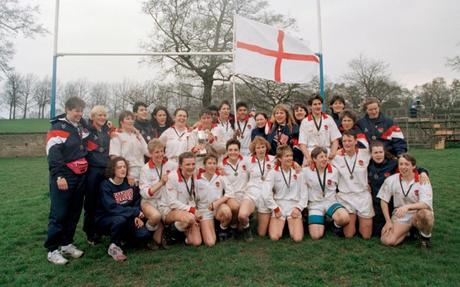
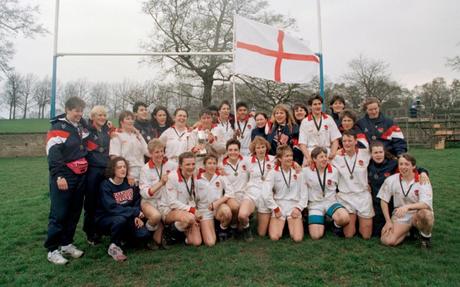
The IRB threatened sanctions for countries that participated. New Zealand and the Netherlands were among those to withdraw their teams. To be viable 12 teams were needed and a fortnight before the tournament Spain was out, so Scottish students were called up as emergency replacements.
Then there was another bump in the road.
"Ten days before the start we were told that the Russians actually had no place to stay. And they arrived in Manchester with no money and no transport," says Brodie. "I went to local radio and put out an appeal - there had been some momentum building around the tournament by then - and we got a two-week stay in a nursing home in Livingston. It was right next to the rugby field, so they also got a training facility."
"It was a seat-of-the-pants kind of thing," Colamartino adds. "All they had with them when they arrived were a bunch of bottles of vodka and Russian dolls. Pizza Hut gave them free pizza every night and a minibus company gave them a bus for two weeks, but the bus broke down on the way to the game against us. So they were late for that game."
The team from Kazakhstan, which brought a team hairdresser, had a bus and traveled all the way to Scotland to participate. It took them three days. The Japanese opted to fly in and wore identical bright red scrumpets during matches, which turned out to be every commentator's nightmare.
It was crazy stuff, the World Cup in the wild west, but there was something about the tournament that captured the imagination. The rush came; reporting increased explosively. For the amateurs who played, it was glorious.
"Those were definitely the best days of my life," says Colamartino. "The excitement, the buzz, the tension of the audience, the experience we were able to share. It was incredible."
The Scots exited the quarter-final, leaving England and defending champions the United States to take part in the final, which was shown on the BBC with the "Voice of Rugby" Bill McLaren in the commentary box. England won 38-23 and became world champions for the first time.
The trophy and winner's medals were theirs, except the medals contained no reference to the winners whatsoever. "We didn't have time to sort the medals for winners or runners-up, so every player in the tournament got the same one," says Colamartino.
That evening, all participants from the twelve countries gathered for a farewell dinner and ceilidh at the Grosvenor House Hotel in Edinburgh. The hair was spectacularly let down. At the end of the evening the fire alarm went off and everyone had to evacuate. It was a false alarm.
"The rumor was that the Americans had set off the alarm to get everyone out so they could steal the trophy," says Colamartino. "A member of the ceilidh band, who was sober, remembers seeing the Canadian team singing and dancing outside in the fire truck. The fire brigade enjoyed it."
It was a fitting way to bring the curtain down on a unique world championship that was finally given World Cup status by the IRB fifteen years later.
Without Colamartino it would have been the end of the story. She felt it deserved a wider audience, so, in a can-do style befitting the 1994 World Cup itself, she enrolled in a screenwriting course. She wrote a script and showed it to Ed Crozier, a former SRU president who had been a linesman at the tournament. He also happens to be a theater producer.
That script, professionally polished by award-winning TV screenwriter Kim Millar, has evolved into the musical that Crozier will perform the weekend of April 12-14. Tickets have already sold out and he hopes to take the show to London next year for the Women's World Cup and who knows where else.
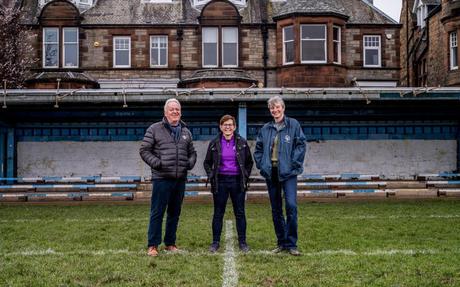
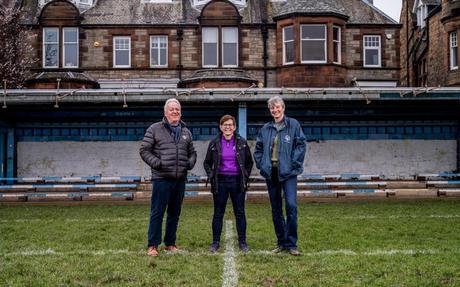
"It has everything to do with another Calendar Girls," he says. "For me this production is not entirely about rugby, just as Chariots of Fire was not entirely about athletics. It's about overcoming setbacks and getting something done against the odds. The way Eric Liddell won the 400 meters in 1924 is like the way these girls took it across the finish line.
"When people see this, I want them to think, 'Anything is possible.'"
Even organizing a World Cup in 90 days.
Tickets (£20) are available for a 90 Days livestream performance on Saturday April 13 at 8pm. To see www.90daysplay.co.uk
